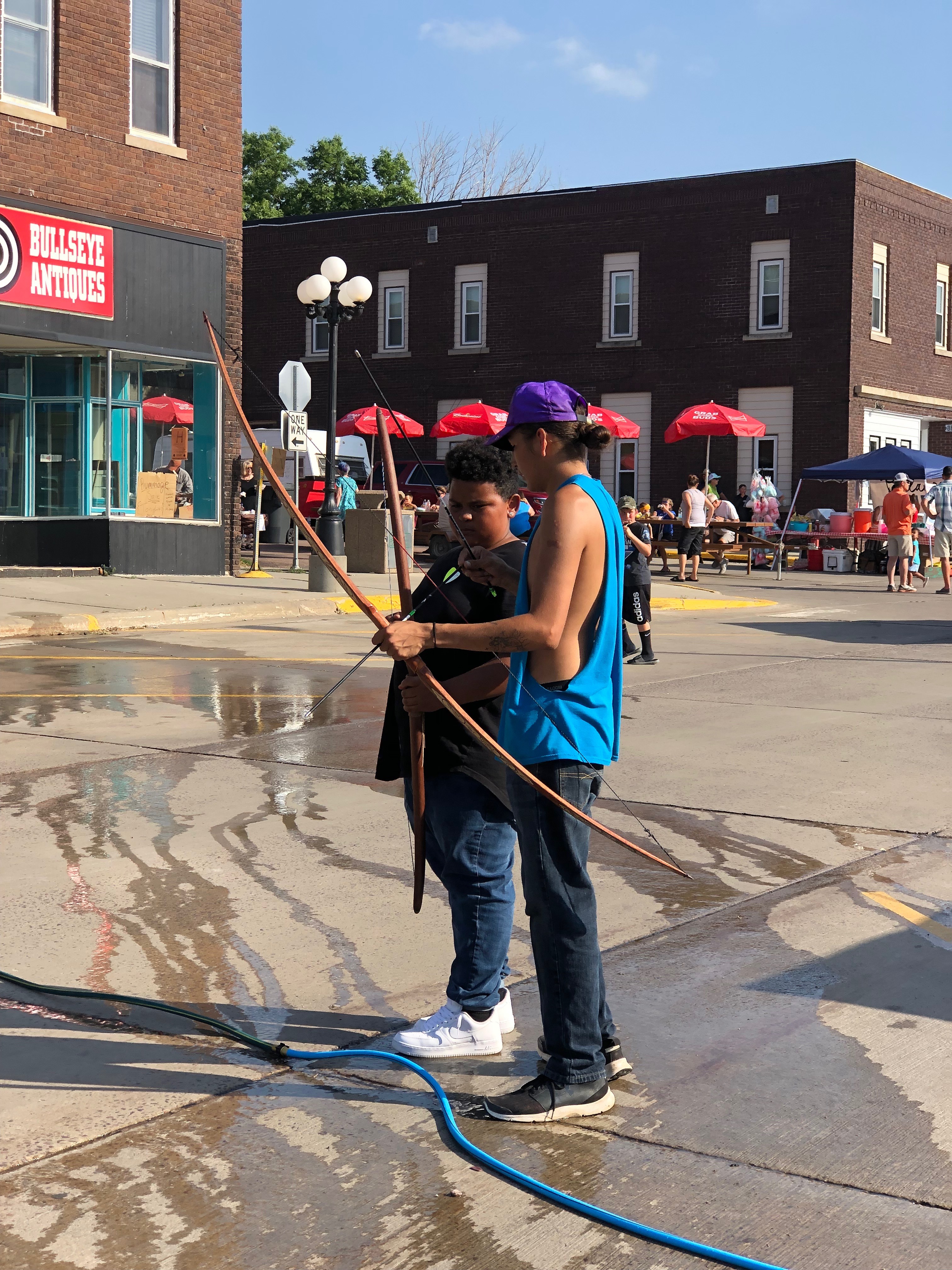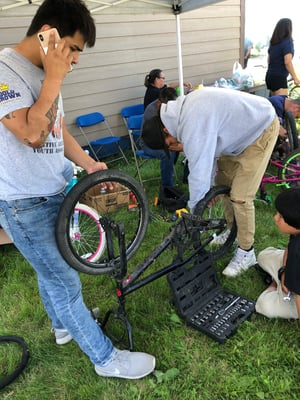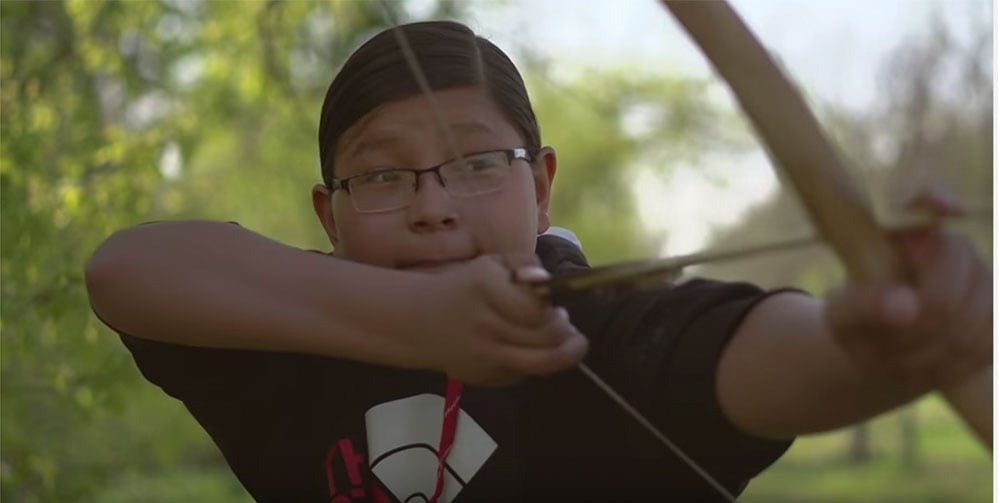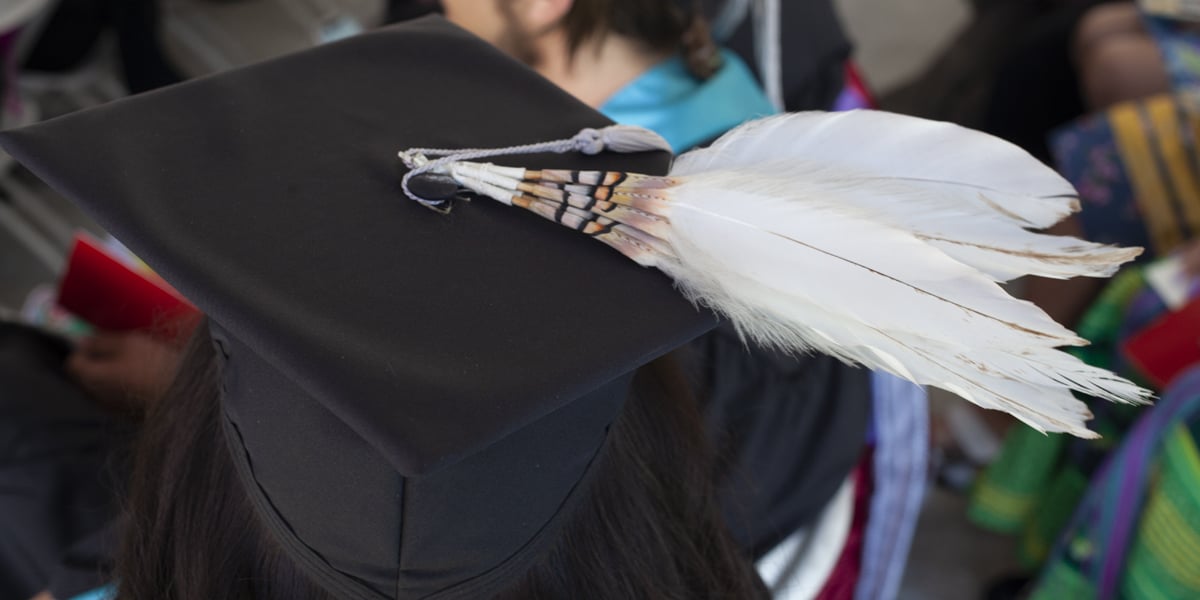Aug 21, 2019 | Native Hope
Native Hope Leaders’ Society member Ramez wants to create a positive impact on his friends and classmates from his native community.
That’s why Ramez volunteers his time to teach youth and families to make dream catchers, to show youth of all ages to shoot Lakota Bow and arrows, and to facilitate basketball competitions for communities—all of these on his Fridays and Saturdays.
Ramez feels the best way to be a positive leader in his community is to form a team of area kids who have similar goals and to travel to tournaments playing rezball—spreading hope for others through the comraderie of their team, the “Siouxper Elite.”
The Importance of Rezball
The nickname “rezball” is short for reservation ball, and the game is best known for its quick pace and relentless aggressiveness. No matter the season, rezball games are taking place at indoor gyms, on outdoor courts, or wherever someone hangs a hoop.
"There's not much to do on the rez other than play basketball," says Kyal. Reservations are generally remotely located, sometimes more than one or two hours away from bigger towns or cities. Despite the distance to other towns, many Native Americans remain on their reservations in order to be close to their tribal communities and roots.
Many reservations harbor high unemployment, low graduation rates, and few resources, which takes its toll on the parents and families and contributes to high rates of youth suicide, drug use, teen pregnancy, and other negative outcomes.
Native Hope proactively combats these issues, providing positive mentorship and resources to empower youth to set and achieve their goals through positive outlets. Each member participates in numerous service opportunities with Native Hope mentors, then he relates a dream of his own and a plan to make it happen.
The Siouxper Elite
On Friday, July 19 through Sunday, July 21, 2019, the Siouxper Elite and their mentor Kyal traveled 4.5 hours to play in the 2nd Annual Hoop God Basketball tournament in Bismarck, ND. The long rides are great for leaders and mentors to use as a safe place to share stories from struggles to successes.
Kyal says, “It’s our very own talking circle; we all share stories, laughs, advice, and we build this trust like a family to lean on and know we aren’t alone.” The group shares rich tribal cultures, histories, traditions and rezball, which has become another way to help keep tribal spirit and identity alive.
The NHLS members hope to dismantle barriers for each other and others through spirituality, through community, through basketball.
The power of peer pressure is strong for Native youth especially in close-knit reservation communities. Ramez knows that influence can run in both directions: positively or negatively. He is determined to be a force for good.
 Ramez is fun and energetic; his passion to be a leader and a positive role model for his peers and the younger kids shows through his engagement in sharing the knowledge he has learned from his mentors at Native Hope. “I want to share the feeling and connection I get from helping others with my friends and also have them meet the people at Native Hope who support me,” shares Ramez.
Ramez is fun and energetic; his passion to be a leader and a positive role model for his peers and the younger kids shows through his engagement in sharing the knowledge he has learned from his mentors at Native Hope. “I want to share the feeling and connection I get from helping others with my friends and also have them meet the people at Native Hope who support me,” shares Ramez.
The Native Hope Leaders' Society
Ramez is just one of the young Natives who participate in mentoring and leadership activities through the Native Hope Leaders' Society.
 The Native Hope Leaders’ Society is committed to empowering and supporting one another to set and achieve their own personal goals. The group is made up of Native American teens from the communities around Chamberlain, South Dakota. Meetings take place up to four times a month, and members catch up on life, school, sports or any topic they want to talk about since the last meeting.
The Native Hope Leaders’ Society is committed to empowering and supporting one another to set and achieve their own personal goals. The group is made up of Native American teens from the communities around Chamberlain, South Dakota. Meetings take place up to four times a month, and members catch up on life, school, sports or any topic they want to talk about since the last meeting.
What makes this group of young Natives so special is their interest in self-development, goal setting, and dreaming big about their lives and futures. The Leaders' Society is facilitated by Kyal, a team member at Native Hope who also grew up in a reservation community outside Chamberlain. Kyal knows firsthand what it's like to grow up on the reservation, being part of a close-knit community, but navigating difficult things like drugs, alcohol, and family dysfunction.
Now, Kyal and the teens in the Leaders' Society are creating a space to process difficulty and rejoice in positive opportunities, a place for conversation, support, and growth.



COMMENTS